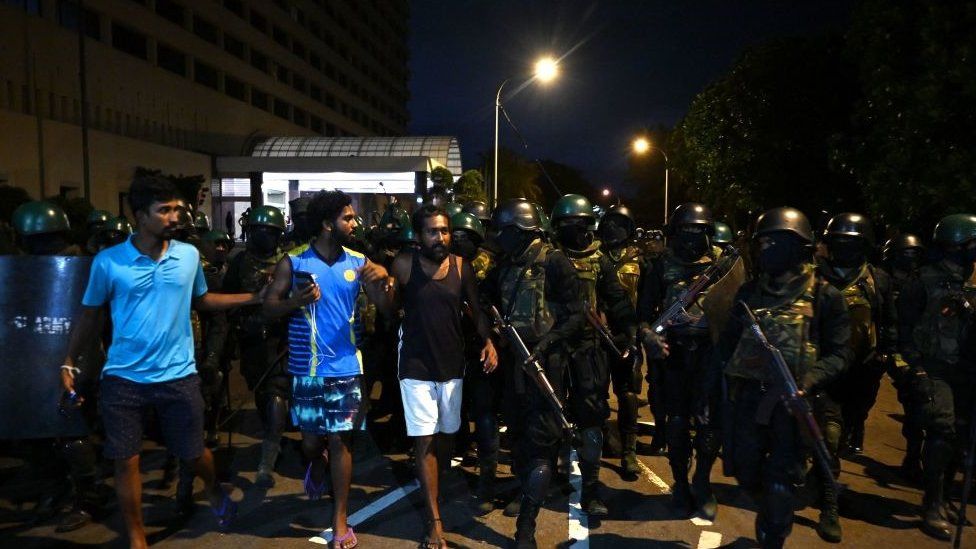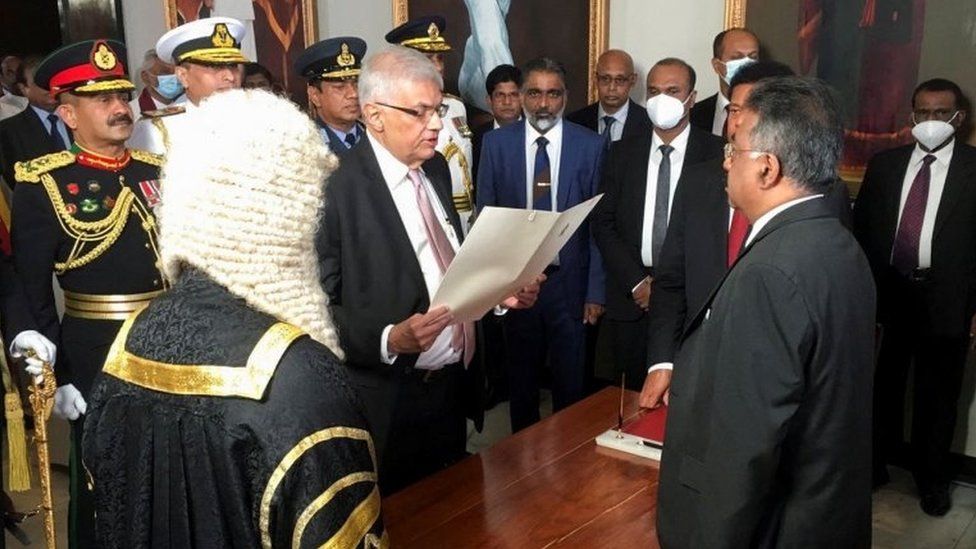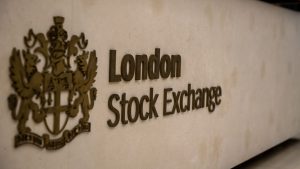Hundreds of troops and police commandos moved on the protesters outside the presidential offices, hours before they were due to leave the area.
A BBC video journalist was beaten by the army and one soldier snatched his phone and deleted videos.
It comes after Ranil Wickremesinghe was sworn in as president.
Sri Lanka’s ex-president Gotabaya Rajapaksa fled the country last week.
Mr Wickremesinghe – the former prime minister – is seen as deeply unpopular with the public, and has vowed tough action against demonstrators. But some protesters have said they will give him a chance.
Sri Lanka has seen months of mass unrest over an economic crisis.
Many blame the Rajapaksa administration for mishandling the nation’s finances, and see Mr Wickremesinghe as part of the problem. But there were few demonstrations on the streets the day after he won the parliament vote.
Soon after Mr Wickremesinghe was sworn in, he made clear that any attempt to topple the government or occupy government buildings was not democracy and warned that those who indulge in such activities will be dealt with firmly according to the law.
There had been concerns among demonstrators that the government might gradually crack down on the protest movement sooner or later.

Getty Images
BBC journalists attacked
By Anbarasan Ethirajan, BBC News, Colombo
When we heard that troops might be raiding the anti-government protest site in Colombo after midnight, we went to the spot just in front of the Sri Lankan president’s office.
Soon, hundreds of heavily armed soldiers and police commandos with riot gear descended from two directions, their faces covered.
When activists raised objections to their presence, the security personnel marched on and became aggressive. The protesters were pushed back.
Within seconds, we saw soldiers shouting, dismantling and destroying make-shift tents and other items on the pavement. Troops also moved into the president’s office which was stormed by huge crowds last week.
Activists had earlier said they would hand over the building on Friday afternoon. As we followed the soldiers, we could see they were clearing everything in their way.
The protesters were pushed up to the designated protest site less than 100m away and steel barricades were set up to stop the activists.
When we were returning from the area, a man in civilian clothes, surrounded by troops, shouted at my colleague and said he wanted to delete the videos from his phone. Within seconds the man punched my colleague and snatched his phone.
Though I explained to them we were journalists and simply doing our job, they wouldn’t listen. My colleague was attacked further and we raised strong objections. The mic of another BBC colleague was taken and thrown away.
The phone was returned after the videos were deleted from the device. Another army officer intervened and let us go.
My colleague was shaken but was able to walk back to the hotel, a few hundred metres away.
The BBC tried to get a response from the military and police on the attack, but no-one answered our calls. A state of emergency declared last week is still in place.

Mr Wickremesinghe is aiming to restore political stability so the country can resume negotiations with the International Monetary Fund for a bailout package, estimated to be about $3bn.
Sri Lanka has been wracked with protests for months because the country is effectively bankrupt and facing acute shortages of food, fuel and other basic supplies.
Tens of thousands of protesters had last week marched in the streets of Colombo calling for Mr Rajapaksa and Mr Wickremesinghe to resign.
Mr Rajapaksa fled the country in the early hours of 13 July after the protesters stormed and occupied his political residence. He flew to the Maldives and then Singapore, from where he issued his official resignation.

Reuters
However Mr Wickremesinghe did not resign – though he had initially offered to – and instead accepted the position of acting president when Mr Rajapaksa fled.
When he assumed the job of acting president last week, he ordered the military to do whatever was necessary to restore public order, following protesters storming and occupying government buildings.
He also extended a national state of emergency order this week to stamp out any flare-ups.
A former six-time prime minister, Mr Wickremesinghe failed in his previous two runs for the presidency. His victory on Wednesday means he will serve out the rest of the presidential term until November 2024.

Sri Lanka: The basics
- Sri Lanka is an island nation off southern India: It won independence from British rule in 1948. Three ethnic groups – Sinhalese, Tamil and Muslim – make up 99% of the country’s 22 million population.
- One family of brothers has dominated for years: Mahinda Rajapaksa became a hero among the majority Sinhalese in 2009 when his government defeated Tamil separatist rebels after years of bitter and bloody civil war. His brother Gotabaya, who was defence secretary at the time and later became president, fled the country after mass unrest.
- Presidential powers: The president is the head of state, government and the military in Sri Lanka, but does share a lot of executive responsibilities with the prime minister, who heads up the ruling party in parliament.
- Now an economic crisis has led to fury on the streets: Soaring inflation has meant some foods, medication and fuel are in short supply, there are rolling blackouts and ordinary people have taken to the streets in anger, with many blaming the Rajapaksa family and their government for the situation.








